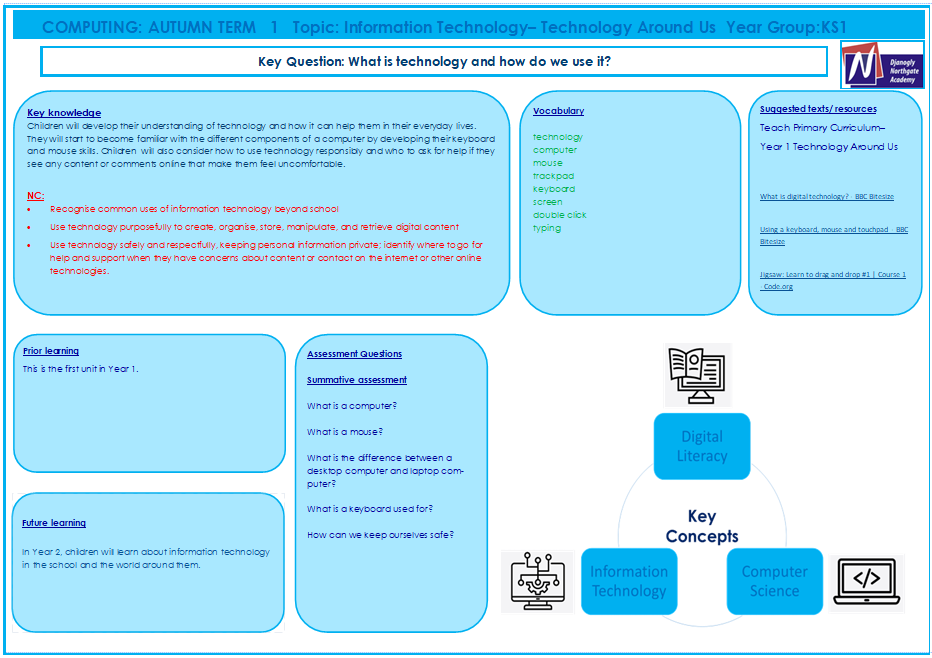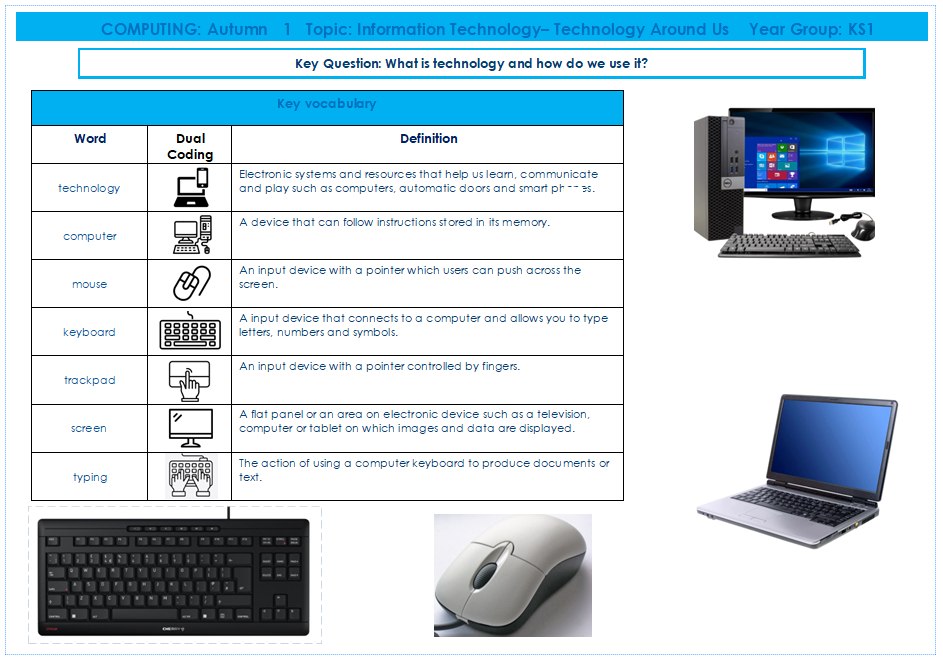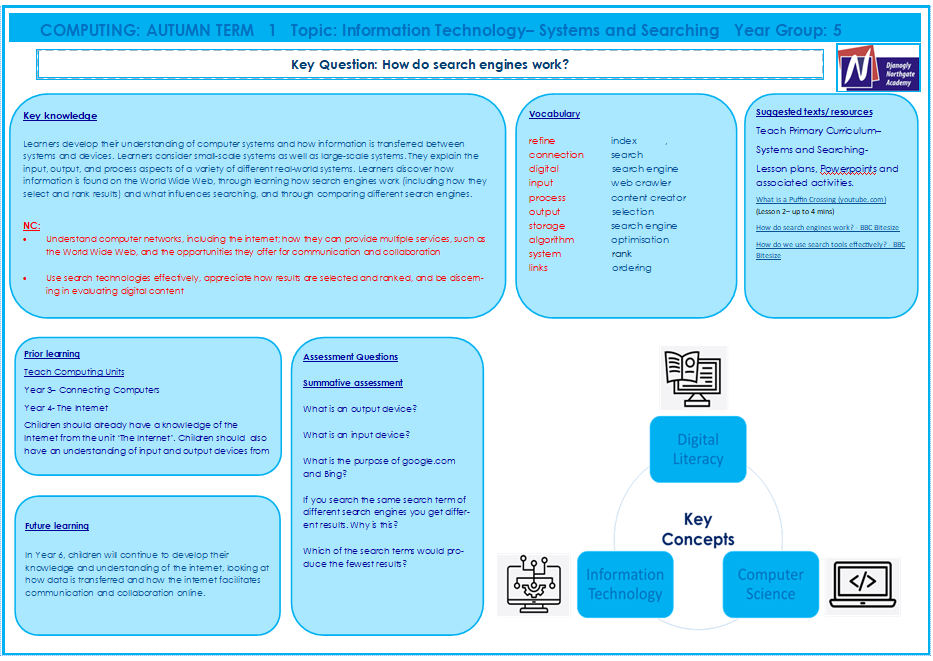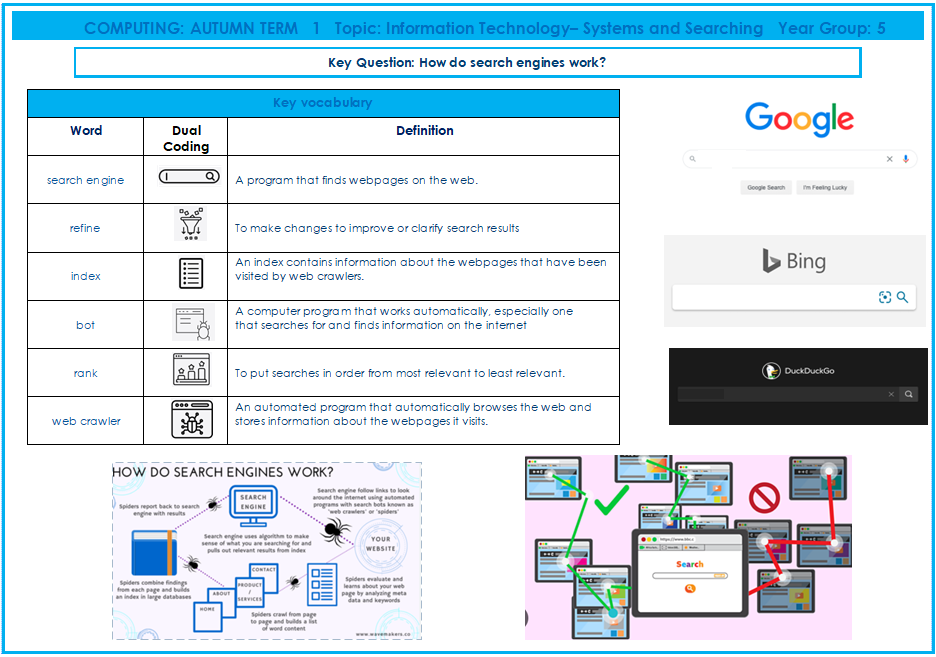Computing
For most of us, technology is essential to our lives, at home and at work. 'Computational thinking' underpins modern life and is an essential skill that children must be taught if they are to be ready for the workplace and able to participate effectively and confidently in the rapidly developing digital world.
Online safety is a priority at Northgate. We make sure that children leave our school with a good understanding of both the benefits and risks of using the internet. Children are taught to use the internet safely and responsibly.
Intent
At DNA, we will provide all of our children with the skills, creativity and enthusiasm to thrive in a world increasingly dependent on computing. Computing will develop problem solving skills, raise aspirations and open children's eyes to the endless possibilities the digital world can offer in their future.
We ensure that our school values are integrated into our Computing lessons:
- Discover - We encourage children to explore and experiment with code, digital tools and technology. They are often presented with problems without a 'right' answer which allows them to investigate different solutions.
- Nuture - We create a supportive, nurturing environment where children are encouraged to develop their Computing skills by working with staff and other children.
- Aspire - We inspire children to achieve their full potential in Computing and open their minds to future opportunities.
Implementation
In Computing lessons, children will develop their skills across three areas of computing:
- Computer Science
- Digital Literacy
- Information Technology
Computer Science
In Computer Science, pupils learn how computers and programs work. It includes learning basic programming, how computers follow instructions and concepts like algorithms and logic.
Digital Literacy
In Digital Literacy, pupils learn how to use technology safely, responsibly and effectively. Children learn how to interact online, how to stay safe and how to evaluate digital content critically.
Information Technology
In Information Technology, pupils learn how to use technology to create, store, organise and present information. It focusses on practical skills with digital tools and applications.
Computing lessons allow pupils to develop technical knowledge as they engage in the following processes:

Example of a medium term plan and knowledge organiser for KS1.


Example of a medium term plan and knowledge organiser for KS2.


